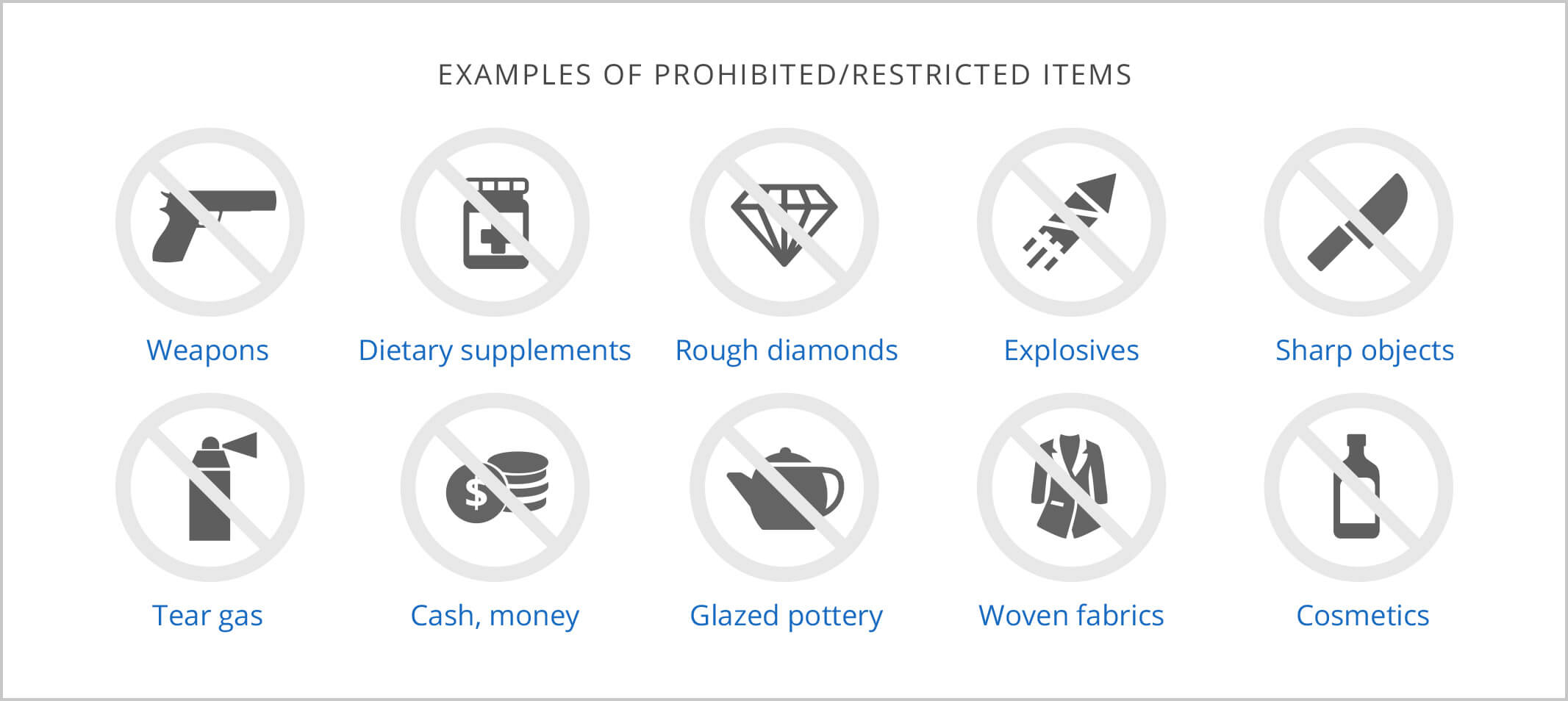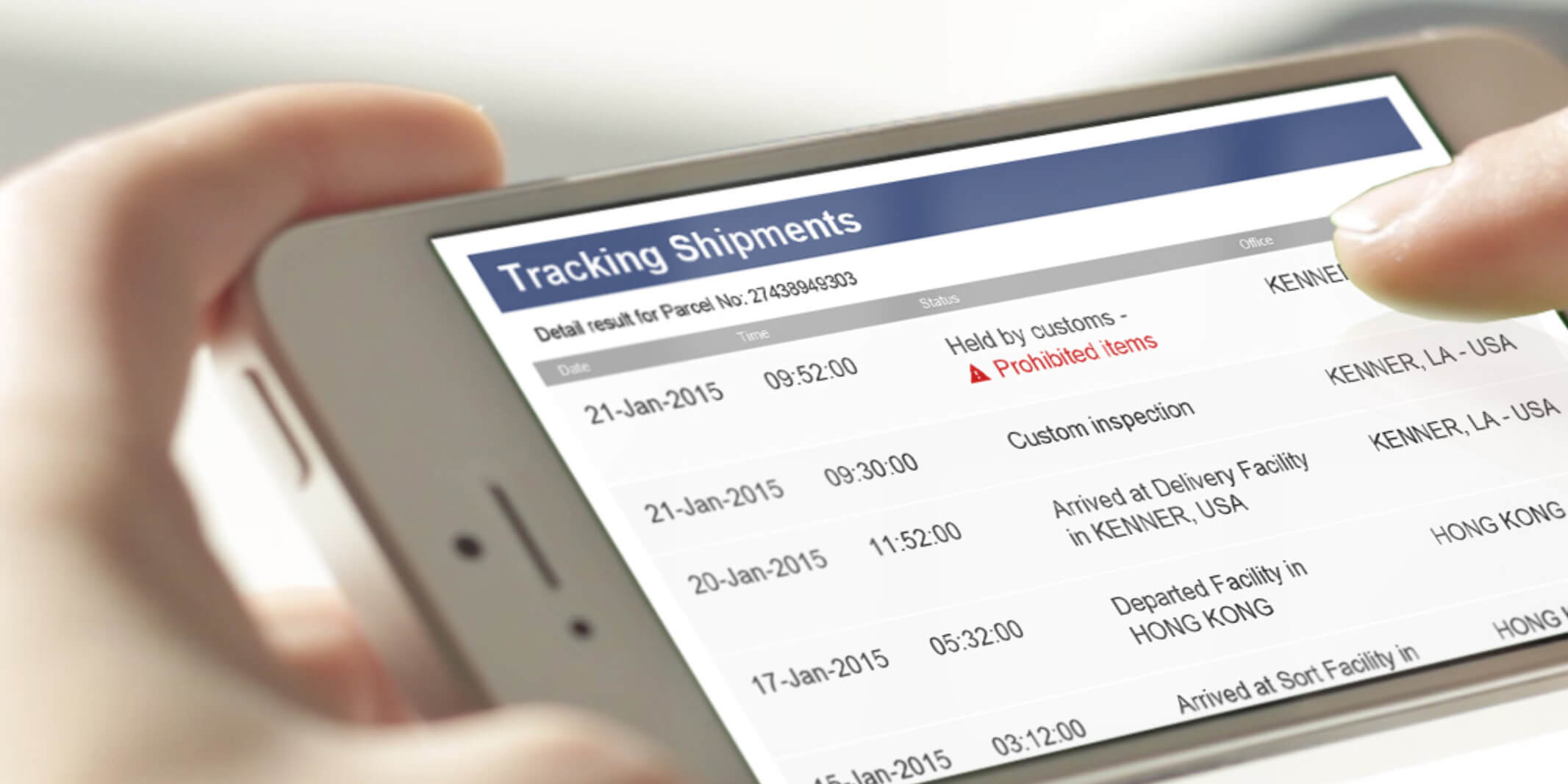Product export restrictions may be the source of the top challenges for ecommerce brands that sell online abroad. For example, online retailers may (unknowingly) have prohibited or restricted items for export in their product catalogs.
Sending such items abroad may result in delayed or held shipments, penalties and fines. It may also cause high costs for retailers and a bad buying experience for customers.
In this article, you’ll learn about:
- the examples of product export restrictions and their impact on your ecommerce business
- how to spare your customers disappointment by avoiding sending risky goods and delivering to flagged addresses.
Product export restrictions in international ecommerce
In international ecommerce, selling some products is prohibited or restricted due to importing or exporting country or transportation regulations.
Prohibited items are not available for export/import whereas restricted items can only be imported with additional permissions, documentation, licenses, etc.
Examples of prohibited/restricted products include:
- pornographic materials
- dangerous goods, weapons, explosives, sharp objects
- skins of certain reptiles, fur
- drugs
- many others.

Some items may be far from obvious. Take toy guns as an example. Even though toys shouldn’t be dangerous per se, toy guns seem to raise security concerns when detected in a scanning system. As a result, they either cause suspicion or are considered illegal in many cross-border ecommerce situations.
Further, selling antiques from several countries may be a problem. It’s often prohibited as it can be seen as plundering a given country’s national heritage.
Product export restrictions also involve shipment or carrier-related restrictions, e.g. in terms of the shipment’s weight, size or type of product. In some cases, goods can be sold in a given country but are not allowed to be delivered by plane.
Finally, it may be illegal to deliver shipments to certain restricted and denied parties that pose security risks on international lists.
The impact of product export restrictions for ecommerce retailers
Before sending goods abroad, ecommerce retailers must be aware of any import bans the target country may have. Any potential restrictions will also impact the seller’s return policies.
If you ship prohibited items abroad without any prior screening, a number of issues may arise. For example, the shipment may be held or delayed, which will cause frustration for both you and your customer. Further, you may have to cover the cost of potential refunds or fines imposed by customs.
Awareness is the starting point to keep your ecommerce business on the safe side.
Not only can you avoid unpleasant situations, but sometimes also restrictions themselves. For instance, you may find out that you’re just not authorized to sell restricted items and you can solve this by sorting out a few formalities, e.g. with some kind of certification/registration.

If you ship prohibited items abroad without any prior screening, a number of issues may arise.
Product export restrictions & challenges for online retailers
Customs compliance is a major pain point for international ecommerce brands. Part of it is ensuring that prohibited goods aren’t traded on international markets. It’s not only about more obvious products, such as drugs, weapons or explosives. Prohibited items may also be everyday products, e.g. select electronics, aerosols, furs and certain cosmetics.
Unfortunately, some ecommerce retailers don’t even know that they are offering prohibited goods. This may be due to lack of awareness or simply missing an update in international trade agreements.
Your business or brand perception may not have been impacted yet. However, it’s better to be safe than sorry. The risk is big: legal complications, financial losses and destroyed customer experience.
Some of the possible scenarios can have a very negative impact on your company. Customs may impose penalties or fines. Your goods may even be confiscated and a lawsuit may be filed against you in a local court abroad. Further, your customer may not get their parcel and may decide not to order from you anymore. Instead, they share their disappointing experience with your brand.
Can you stay on top of product export restrictions?
You can try to check international prohibited items checklists and international watchlists on your own. You can also constantly monitor international trade agreements, such as CITES about international trade in specimens of wild plants and animals.
It’s important to stay up-to-date: commonly available lists of prohibited goods may not be the latest, most accurate versions. International import and export restrictions and watchlists get updated, too.
To ensure you’re compliant, be prepared to invest money to do some thorough checking.
If you’re ok with large overhead costs and making customs compliance a bigger part of your business strategy, you can try to do it by yourself.
Alternatively, there’s the option of using an automatic ecommerce solution that stays on top of restrictions that could seriously affect your business. You’ll be instantly notified of prohibited items you may want to ship. This way you’ll feel empowered to make more informed decisions in a hassle-free way.
Product export restrictions with Glopal
Glopal offers a solution that alerts you to potential delayed or failed shipments at the checkout level. It screens for prohibited items, embargoed countries and restricted/denied parties. It also picks up carrier-related restrictions.
As a result, international ecommerce brands can ship goods cross-border securely and without setbacks.
Glopal automatically identifies restricted and prohibited items for export to specific destinations. This verification can also be performed offline and full product catalogs can be processed via our API.

It’s important for international ecommerce retailers to stay alert to potentially delayed or failed shipments.
In a nutshell
A better understanding of product export restrictions is crucial for international ecommerce brands. Granted, there is always a risk of unpleasant surprises whenever goods have to go through customs. However:
Many potential issues can be detected in advance so your brand image and customer experience stay intact.
The right ecommerce tools help you screen for prohibited items, embargoed countries and restricted/denied parties. This way, problematic cases can be detected at the checkout level.
As a result, you can maximize your chances of successful cross-border transactions and win satisfied, loyal customers abroad.






